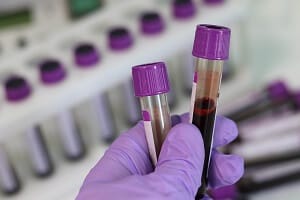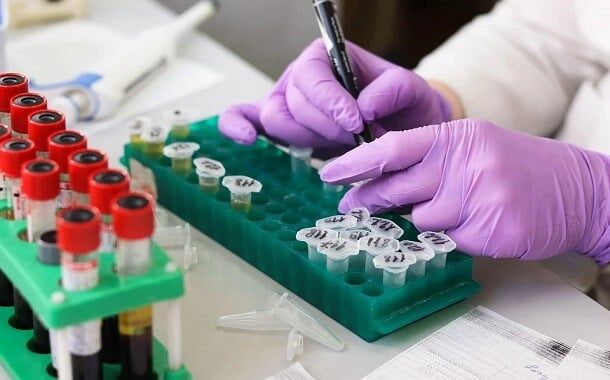Titer Test Cost
Last Updated on October 11, 2021
Written by CPA Alec Pow | Content Reviewed by ![]() CFA Alexander Popinker
CFA Alexander Popinker
An antibody test, also known as a titer or serological test, is a blood test that shows if a person has antibodies against a virus. Antibody tests can help identify people who have gone through the disease unknowingly because they have been asymptomatic. Antibody tests can therefore provide important information about a person’s medical history, and scientists say that this history could be important for the eventual management of future medical problems.
This test will show if an individual has had a vaccination for the disease or if they are immune. It may also be required by schools and/or medical centers to prove that you’re immune to a certain disease.
How much does a titer test cost?
Prices for a titer test vary depending on what kind of test you want and where it is done. A single blood test can cost around $40 while combining it with other different tests could add up to $350 to the cost. You can find some titter tests price estimates for some of the most common diseases in the table below.
| Type of Titer Test | Average Price |
|---|---|
| Hepatitis A | $50 |
| Diphtheria | $75 |
| Hepatitis B, MMR & Varicella | $200 |
| Hepatitis B | $50 |
| Hepatitis C | $50 |
| MMR | $100 |
| Measles | $50 |
| Pertussis (Whopping Cough) | $150 |
| Mumps | $50 |
| Rubella | $50 |
| Polio | $300 |
| Tetanus | $100 |
| Tdap | $200 |
| Varicella | $75 |
| Tetanus Diphtheria | $150 |
Titer Test details
 A person’s immunity to a disease is determined by the antibodies in their blood. A positive test will show if they are immune or have previously been exposed to the disease, while negative results mean that they’ve never had exposure at all before.
A person’s immunity to a disease is determined by the antibodies in their blood. A positive test will show if they are immune or have previously been exposed to the disease, while negative results mean that they’ve never had exposure at all before.
As each titer test can measure a specific disease they are not created equally. Referring back to the table above, you’ll see which one is best for your immunity needs.
You might also like our articles about the cost of karyotype tests, tuberculosis tests, or MRCP tests.
Depending on the type of test you choose, you can find out if you have been infected with a certain virus in the past, even if you have had symptoms or not. Quantitative tests can also give you information about the number of antibodies in your blood and the level of protection you have gained from infection or vaccination.
Some tests for antibodies are qualitative, which means that their result confirms or disproves the presence of antibodies, without detecting the concentration. The result of the qualitative tests is expressed in the form of Index, Ratio, or S/CO.
On the other hand, as mentioned above, quantitative tests determine the concentration of antibodies and are expressed by arbitrary units, such as AU or U, specific to each manufacturer, or BAU/ml, meaning antibody binding units.
Specialists point out that these values are not comparable from one manufacturer to another, so the results may differ depending on the laboratory.
Where can I get a titer test done?
It’s simple and straightforward. Just call up your local lab or hospital, and they will set you up with an appointment. If this isn’t available in one place close to where you live, there may be other options as well. Ask around town at hospitals/labs for more information on testing centers that offer these types of services nearby.
What are the extra costs?
The prices on the list presented above include only the costs of the test itself. If you need help with the test and have the procedure done at your local doctor, you would have to add an extra $70 to $160 to the final bill, depending on what insurance plan you have.
Medical professionals will recommend vaccination in the case of negative results.
Important things to consider
Most people who take the test usually don’t need any special preparations or requirements to do so. However, if you are given certain instructions by your doctor then it’s best to follow them accordingly.
Laboratory serological tests are performed by collecting venous blood samples, like any regular blood test.
How can I save money?
You can save on your blood test by buying it online and having the samples sent to a local approved lab. Compare prices of two or three labs; look at their pricing pages to find out how much each will charge before deciding which one is best suited for you.
A titer test can bring expenses down by more than 50% if it’s bundled with other tests. If you know that want to be tested for multiple diseases, this would be the most cost-effective method of all.
College students are often required to take tests that can be expensive. If your school has a health center, ask if they offer discounts for this type of test so you don’t have to pay the full price.
You might be surprised to learn that if you have insurance coverage through your college, it may cover some or even all of the cost.


Leave a Reply
Want to join the discussion?Feel free to contribute!